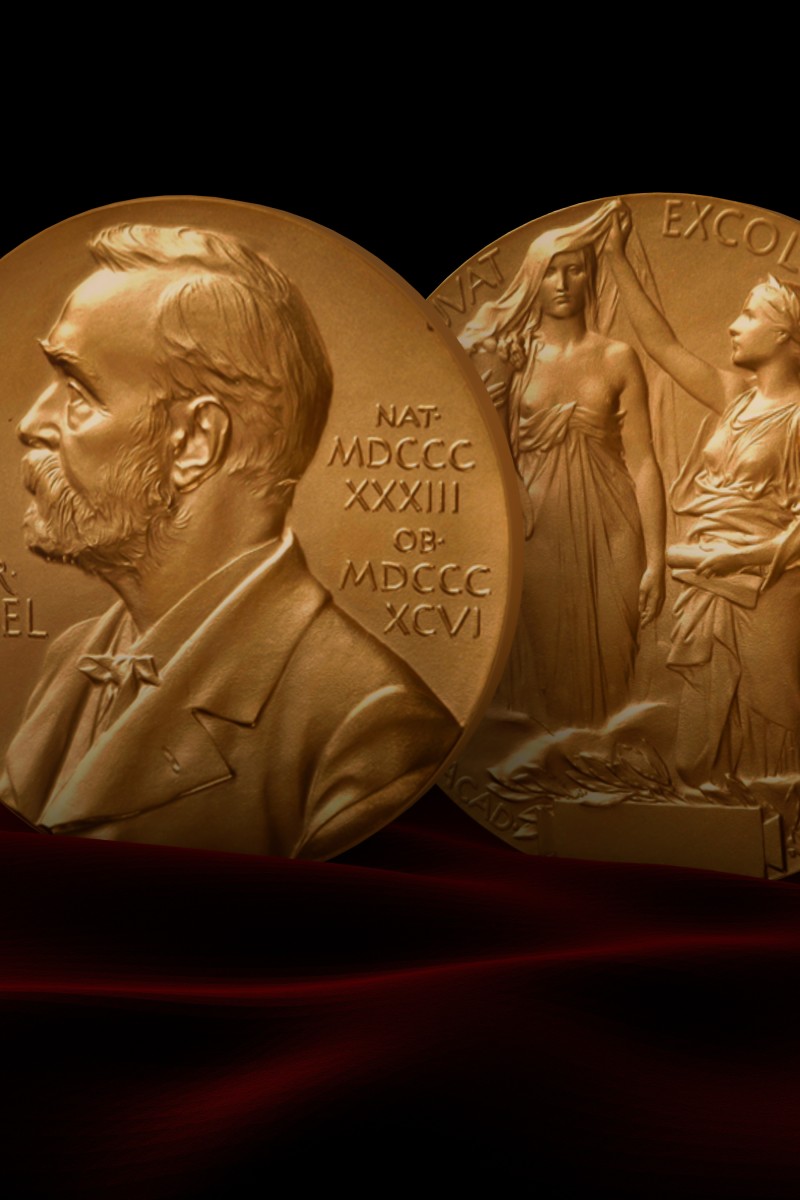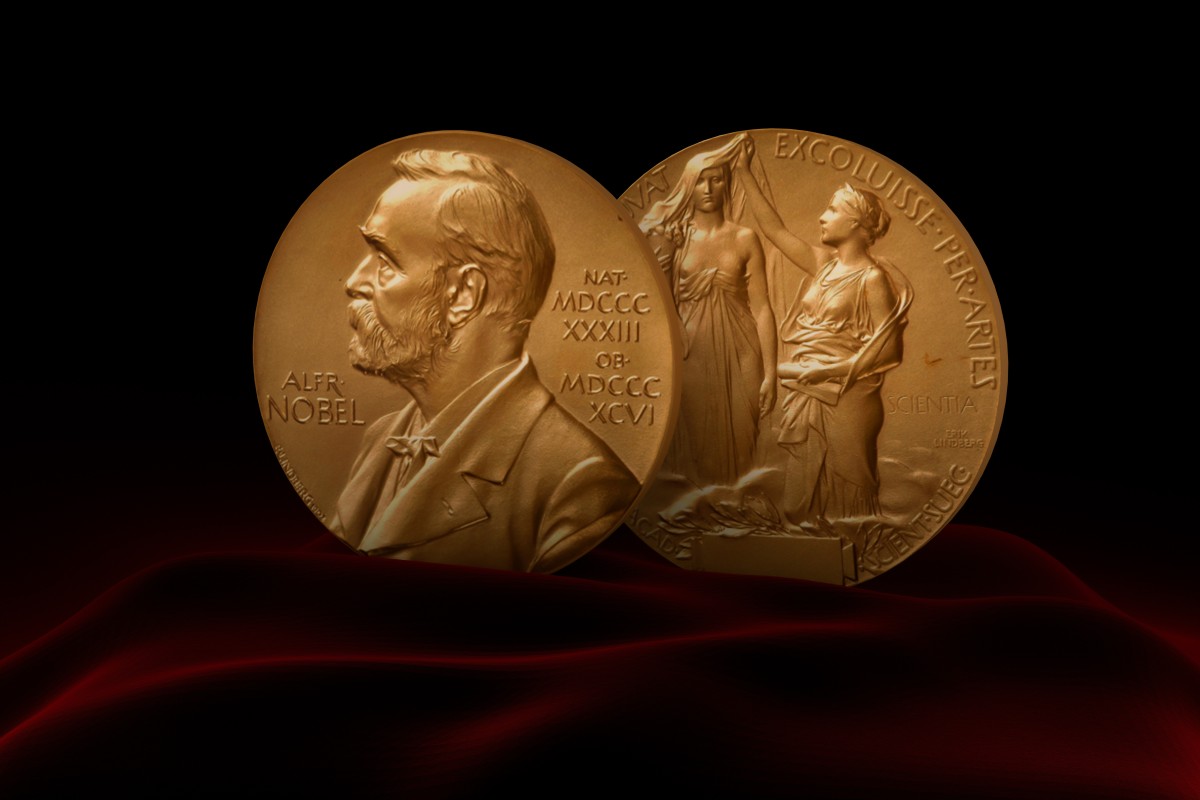
15 facts to know about the Nobel Peace Prize, the world's highest honour
Published:
Listen to this article
- Swedish climate change activist Greta Thunberg has been nominated for the prize, along with the people of Hong Kong for the pro-democracy protests
- Former US president Barack Obama won the prize in 2009, and human rights activist Liu Xiaobo was the first Chinese person living in China to win any Nobel prize
Susan Ramsay |
Published:
Susan Ramsay first arrived in Hong Kong in 2000 and joined Young Post as editor in 2008 after more than two decades as a sub editor and writer in her native South Africa, and Asia.
expand
Comment
 The Nobel Peace Prize is considered one of the most prestigious awards a person can win.
The Nobel Peace Prize is considered one of the most prestigious awards a person can win. The “People of Hong Kong” or teenage environmentalist Greta Thunberg could, tomorrow, win the world’s highest honour – the Nobel Peace Prize. Here’s what you need to know about it:
- The Nobel Peace Prize goes to the person “who has done the most or best to advance fellowship among nations, the abolition or reduction of standing armies, and the establishment and promotion of peace congresses”.
- These rules were set out in the will of Swedish industrialist Alfred Nobel, the inventor of dynamite, who founded the awards.
- The winner is decided by The Norwegian Nobel Committee – five people who have been appointed by the Norwegian government.
5 times Nobel Prize winners caused controversy
- A person can be nominated by any one of thousands of people who have the power to nominate them, including university professors in history, social sciences, law and philosophy, and government members and former prize winners.
- The winner gets a medal, a diploma and a little more than US$1 million. They also get instant fame. South African Archbishop Desmond Tutu, the 1984 laureate, has said becoming a Nobel laureate was a double-edged sword. “One day no one was listening. The next, I was an oracle,” he is quoted as saying in his authorised biography.
- The youngest person to ever win a Nobel Peace Prize was Malala Yousafzai. The Pakistani was just 17 years old when she won in 2014. Greta is also 17, and so will share this accolade if she wins tomorrow.
- The Nobel Peace Prize is one of five categories of the award. The others are Physics, Chemistry, Medicine and Literature.
At just 17-years-old, Malala was the youngest ever winner of the Nobel Peace Prize. If Greta Thunberg wins, they will share the honour.
- The winning medal for the Nobel Peace Prize carries the inscription Pro pace et fraternitate gentium, which means “for the peace and brotherhood of men”.
- The ceremony will take place in Oslo, the Norwegian capital, on December 10, the anniversary of Alfred Nobel’s death.
- If the “People of Hong Kong” win the prize, it is sure to annoy Beijing. The nomination was made by two US politicians to honour Hong Kong’s pro-democracy movement. The months-long protests were sparked by the government’s now-withdrawn extradition bill. The prize, they said, shall honour “millions of people in Hong Kong whose bravery and determination have inspired the world”.
- Many past winners have drawn controversy, such as in 1973, US Secretary of State Henry Kissinger and North Vietnames Le Duc Tho shared the prize for working on a ceasefire between the US and South Vietnamese governments. Tho was the first Asian to ever be nominated for the award. He declined it, though, because peace had not actually been achieved at the time. Many people believed Kissinger should never have been awarded the prize because they blamed him for then US president Richard Nixon’s decision to bomb North Vietnam during the peace talks.
Narcissist eyebrow study among this year's Ig Nobel Prize winners
- In 1994, Palestinian leader Yasser Arafat, Israeli Prime Minister Yitzhak Rabin and Israeli Foreign Minister Shimon Peres shared the award for their work on the 1993 Oslo Agreement, which was a failure.
- Former US president Barack Obama had been in office for just nine months and had not really done anything when he won the 2009 Nobel Peace Prize.
- In 2010, the prize was awarded to Chinese writer, philosopher and human rights activist Liu Xiaobo. He became the first Chinese person living in China to win any of the Nobel prizes. Liu had been in and out of prison since January 1991. He was imprisoned on suspicion of subverting state authority on December 8, 2008. He died there on July 13, 2017.
- In 2012, the prize was given to the European Union, which many people thought was not a peaceful organisation.
Sign up for the YP Teachers Newsletter
Get updates for teachers sent directly to your inbox
By registering, you agree to our T&C and Privacy Policy
Comment
Susan Ramsay first arrived in Hong Kong in 2000 and joined Young Post as editor in 2008 after more than two decades as a sub editor and writer in her native South Africa, and Asia.
expand
Sign up for YP Weekly
Get updates sent directly to your inbox
By registering, you agree to our T&C and Privacy Policy
